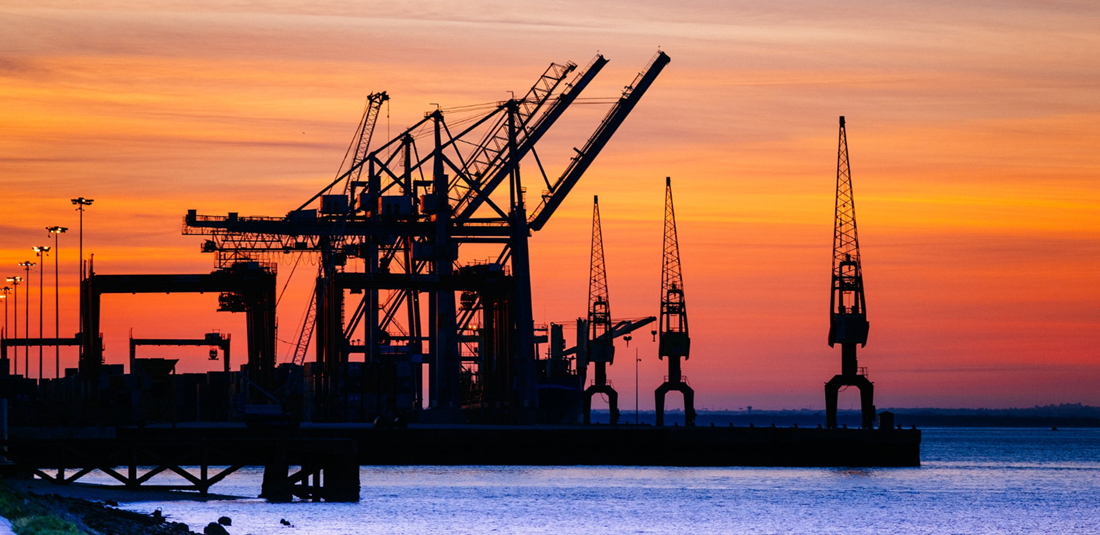
Oil could reclaim top spot in Brazil’s exports, IBP says
Feb, 03, 2025 Posted by Sylvia SchandertWeek 202506
Oil could once again become Brazil’s leading export in 2025, according to the Brazilian Institute of Petroleum and Gas (IBP). Last year, oil overtook soybeans—traditionally the country’s top export—securing the number one position among Brazil’s key export commodities. The sector’s strong export performance is expected to continue this year, says IBP President Roberto Ardenghy.
Data from the Foreign Trade Secretariat of Brazil’s Ministry of Development, Industry, Trade, and Services (MDIC), compiled by IBP, shows that oil exports totaled $44.8 billion in 2024, up 5.4% from $42.5 billion in 2023. In volume, exports reached 640 million barrels last year, a 10% increase over 2023.
This surge occurred despite a decline in oil imports, IBP noted in the same report. Oil imports fell 4.4% in 2024 compared to 2023, dropping from $9.1 billion to $8.7 billion.
As a result, Brazil’s oil trade surplus—exports minus imports—reached $36.2 billion, an 8% rise from $33.5 billion in 2023.
Over the past five years through 2024, oil has generated total revenues of $145.8 billion. Considering trade balances alone, the sector recorded a surplus of approximately $111 billion.
“This demonstrates the strength of the sector,” Mr. Ardenghy said.
On average, Brazil exports 2.5 million barrels of oil per day, totaling about 1 billion barrels annually. According to Mr. Ardenghy, this trend is expected to continue in 2025.
Mr. Ardenghy believes Brazil has the capacity to further increase its oil exports. According to his projections, the country could rise from eighth to fifth place among the world’s top oil exporters by 2032.
He attributes this potential growth to the current global landscape, where countries are seeking alternative oil suppliers to replace Russia and the Middle East. Conflicts in those regions have heightened supply risks, creating an opportunity for Brazil to expand its presence in international markets.
“Europe is replacing Russian oil with Brazilian oil,” he said.
Another factor driving demand for Brazilian crude, according to Mr. Ardenghy, is its lower carbon intensity compared to the global average. Brazilian oil emits approximately 11 kilograms of CO₂ equivalent per barrel—less than half the global average. This environmental advantage, he argues, could make Brazilian oil even more competitive in the medium term, especially as international carbon markets become more established.
Despite ongoing energy transition efforts, Mr. Ardenghy emphasized that oil will remain a major global commodity for decades, even if demand declines from today’s 100 million barrels per day. Projections cited by IBP suggest global oil consumption could range between 60 million and 65 million barrels per day by 2050.
However, Mr. Ardenghy cautioned that oil’s top position in Brazil’s export rankings depends on the performance of competing commodities—soybeans and iron ore. If exports of these two products surge in 2025, they could surpass oil.
Meanwhile, the scenario for refined petroleum products differs sharply from crude oil. In 2024, Brazil exported $11.7 billion in refined fuels but imported $17 billion, resulting in a $5.3 billion trade deficit for oil products. According to IBP, diesel remained the country’s top imported petroleum product, accounting for nearly 50% of total imports, with a significant share coming from Russia.
Despite the current deficit in refined products, Mr. Ardenghy sees a shift on the horizon, citing planned investments in new refineries that could boost domestic production over the coming years. However, he warned that Brazil’s positive oil trade balance could be jeopardized by potential tax increases on the sector.
Mr. Ardenghy pointed to Brazil’s recent tax reform signed into law by President Lula, which included a controversial veto: the removal of an exemption that would have shielded oil exports from the new selective tax. The oil industry had lobbied against this measure.
IBP hopes Congress will overturn the veto. If not, the institute is considering legal action, potentially partnering with the Brazilian Mining Institute (IBRAM) to challenge the tax in court.
Source: Valor Internacional
-
Grains
Jan, 15, 2024
0
Soybean exports to fall with lower production and use in biodiesel
-
Ports and Terminals
Jun, 17, 2019
0
Uruguay inaugurates expanded Pier C in Port of Montevideo
-
Economy
Apr, 14, 2025
0
Vietnam, Brazil target US$10 billion bilateral trade over next two years
-
Meat
Aug, 27, 2021
0
Beef restrictions in Argentina may impact global market, says Rabobank



